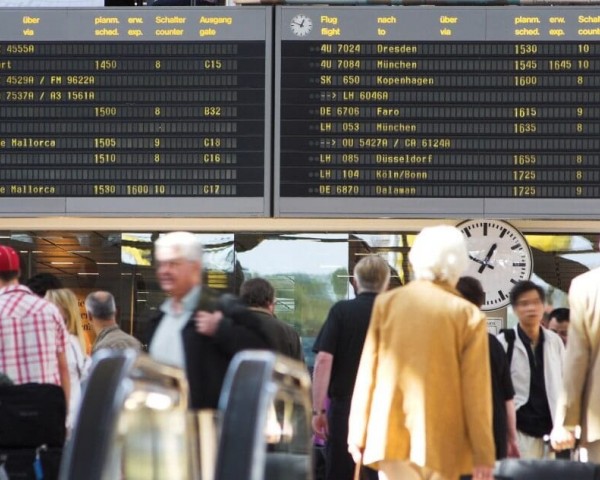Germany’s airports are facing fewer international visitors, a situation that’s lingered since the coronavirus pandemic, a German Airport Association (ADV) passenger survey suggests. The survey, with over 125,000 participants, shows the proportion of international tourists visiting Germany has dropped: from 32% back in 2017, to just 21% by 2024. This, plus financial losses at major airports like Frankfurt, points to a wider issue for Germany’s tourism and aviation industries, and has led to calls for changes to make the country more appealing as a destination.
A Significant Dip in Foreign Arrivals
The ADV survey indicates a definite change in air passenger numbers at German airports. This 11-percentage-point drop in international visitors arguably demonstrates a softening international demand for trips to Germany. The industry suggests high taxes, plus various government fees, are key problems, making flights to Germany less competitive when compared to other spots in Europe. The ADV is, in fact, urging the federal government to completely get rid of the air travel tax – just like Sweden did – to improve affordability and, ideally, attract a greater number of international tourists.
Evolving Travel Patterns
The survey also highlights some evolving reasons people are travelling. Business travelers, once quite a significant group, now only make up about one-fifth of air passengers – lower than pre-pandemic levels. Meanwhile, private travel appears to be increasing, largely driven by visits with family and friends, but also city breaks and events. This seems to show a growing desire for leisure-focused travel, with 48% of passengers arriving to airports using their own car, emphasizing the continued importance of easily accessible ground transport.
Frankfurt Airport’s Financial Difficulties
This drop in air passenger numbers has certainly affected Frankfurt Airport, which is operated by Fraport AG. In early 2025, Fraport reported a €26.4 million loss, a big difference when compared to the €12.7 million profit from the same period the year before. The airport saw around 12.4 million air passengers between January and March, a drop of nearly 1% from 2024 – perhaps explained by the later timing of Easter. This financial pressure highlights the broader difficulties facing Germany’s aviation sector as it slowly recovers.
Call for Policy Changes
Germany’s once-strong tourism industry is at a pivotal moment. The ADV believes the federal government needs to prioritize air travel as part of their wider plans to revitalize the country’s destination appeal. It seems that high taxes and fees have made flying to Germany less appealing to both leisure and those travelling for business. Lowering these taxes and fees may stimulate demand, particularly from international markets, and allow airports to recover their pre-pandemic passenger numbers.
Furthermore, investing in tourism infrastructure along with some thoughtful marketing might further help Germany’s appeal as a must-see place. Highlighting cultural spots such as Berlin, Munich, and even Hamburg, coupled with events like Oktoberfest, could attract more city and event travelers. Finally, improving connectivity through affordable air travel routes, plus effective ground transport, will definitely be important for accommodating the growing number of private travelers.
Looking Ahead
The challenges that Germany’s airports are currently facing highlight the clear need for strategic actions to try and reverse the continuing decline in foreign visitors. Maybe getting rid of the air travel tax, as the ADV suggests, could be a good first step to making Germany more competitive in the global tourism industry. Meanwhile, this trend toward private travel might represent an opportunity to tailor offerings to those leisure travelers who are seeking personal and cultural experiences.
As Frankfurt Airport, and some other German air hubs, manage their financial losses, both the wider aviation and tourism industries now need to adapt to shifting traveler desires, plus new economic realities. By introducing some proactive policies along with targeted investments, Germany could reclaim its position as a top-tier travel destination. ensuring its airports team once more with global travelers keen to discover its profound history and dynamic urban centers.

